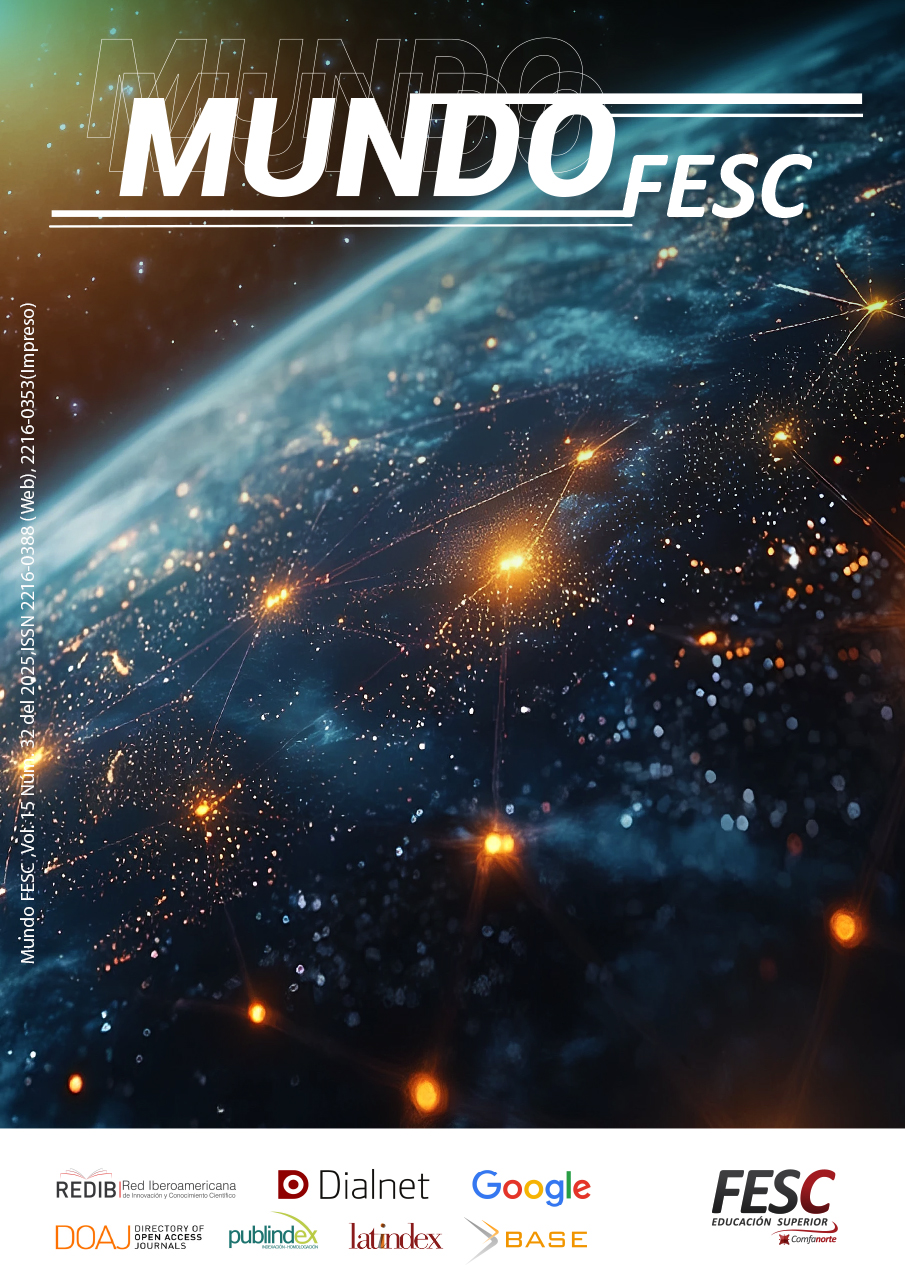Traditional exams to contemporary assessment: challenges and opportunities
DOI:
https://doi.org/10.61799/2216-0388.1842Keywords:
Educational Assessment, Educational Technology, Equity, Latin America, Traditional ExamsAbstract
This study analyzes the transition from conventional exams to contemporary assessment methods in Latin America, focusing on equity and the use of educational technologies. Through a thorough review of recent studies and the analysis of international reports, the main challenges and the relevance of implementing transformative assessments in the region were identified. The methodological approach focused on evaluating how formative assessments, supported by digital technologies, have improved academic performance and promoted more personalized learning. The adoption of these assessments has allowed educators to adapt their pedagogical strategies more effectively and precisely, considering the individual needs of each student.
Despite these advances, significant equity gaps persist, primarily due to unequal access to technological resources and insufficient teacher training. The study’s conclusions emphasize the urgent need to implement educational policies that promote greater investment in technological infrastructure, as well as the continuous strengthening of teacher training. These actions are essential to ensure a more inclusive and equitable education in Latin America, equipping students with the skills needed to face the challenges of the 21st century and adapt to an increasingly competitive global environment.
Downloads
References
[1] P. Black y D. Wiliam, "Inside the black box: Raising standards through classroom assessment," Phi Delta Kappan, vol. 80, no. 2, pp. 139-148, 1998. https://doi.org/10.1177/003172171009200
[2] J. Brown, Evaluación educativa y psicometría: Nuevas perspectivas. Editorial Académica, 2022.
[3] J. W. Creswell y C. N. Poth, Qualitative inquiry and research design: Choosing among five approaches, 4th ed. SAGE Publications, 2018.
[4] J. L. Cruzado Saldaña, "La evaluación formativa en el contexto de la reforma educativa chilena," Revista Latinoamericana de Educación, vol. 12, no. 1, pp. 34-45, 2022. https://doi.org/ 10.15517/aie.v20i1.40159
[5] B. Elman, The history of meritocracy in educational assessment. Oxford University Press, 2013.
[6] P. A. Ertmer y A. T. Ottenbreit-Leftwich, "Teacher technology change: How knowledge, beliefs, and culture intersect," Journal of Research on Technology in Education, vol. 45, no. 4, pp. 257-281, 2013. [Online]. Available: https://doi.org/10.1080/15391523.2013.10782672
[7] F. Gaona y M. Menares, "Gamificación en el aprendizaje: Impactos y posibilidades en América Latina," Revista de Innovación Educativa, vol. 15, no. 3, pp. 29-45, 2021. https://doi.org/10.69821/constellations.v3i1.36 DOI: https://doi.org/10.69821/constellations.v3i1.36
[8] M. Gutiérrez-Martinetti y M. Riquelme-Arredondo, "La integración de tecnologías en la evaluación educativa: Retos y oportunidades en América Latina," Journal of Educational Technology & Society, vol. 26, no. 2, pp. 89-104, 2023.
[9] A. Hernández y L. Camargo, "Impacto de la ansiedad de los exámenes en el rendimiento académico en América Latina," Psicología y Educación, vol. 15, no. 2, pp. 112-125, 2017.
[10] A. Hargreaves, Changing teachers, changing times: Teachers' work and culture in the postmodern age. Teachers College Press, 1994. https://books.google.com.co/books/about/Changing_Teachers_Changing_Times.html?id=yGX8P-O_O9QC&redir_esc=y
[11] J. Hattie, Visible learning: A synthesis of over 800 meta-analyses relating to achievement. Routledge, 2017. https://inspirasifoundation.org/wp-content/uploads/2020/05/John-Hattie-Visible-Learning_-A-synthesis-of-over-800-meta-analyses-relating-to-achievement-2008.pdf
[12] F. López y M. Manghi, "La resistencia docente ante las reformas educativas inclusivas en Chile: Desafíos y barreras," Revista de Investigación Educativa, vol. 39, no. 4, pp. 77-88, 2021.
[13] G. Martínez Rizo, Transformaciones en la evaluación educativa en América Latina: Hacia la inclusión y la equidad. Editorial Pedagógica, 2020.
[14] F. J. Murillo y R. Duk, "Reformas educativas en América Latina: Evaluación continua y las nuevas metodologías," Educación y Sociedad, vol. 38, no. 3, pp. 119-134, 2019.
[15] W. J. Popham, Transformative assessment. ASCD, 2008.
[16] C. Rodríguez y A. Pérez, "Evaluación adaptativa y el futuro de la inteligencia artificial en la educación," Journal of Educational Technology Research, vol. 12, no. 2, pp. 50-63, 2019.
[17] F. Rivas y M. Bernal, "La brecha digital y su impacto en las evaluaciones formativas en América Latina," Revista de Investigación Educativa, vol. 45, no. 1, pp. 63-80, 2019.
[18] M. Scriven, The methodology of evaluation. Rand McNally, 1967.
[19] UNESCO, Informe de seguimiento de la educación en el mundo: Políticas educativas en América Latina. United Nations Educational, Scientific and Cultural Organization, 2017. https://unesdoc.unesco.org/ark:/48223/pf0000388894
[20] UNESCO, Reformas educativas y su impacto en la inclusión en América Latina. United Nations Educational, Scientific and Cultural Organization, 2020. https://unesdoc.unesco.org/ark:/48223/pf0000374615
[21] D. Vaillant y C. Rossel, "La evaluación formativa y su impacto en el aprendizaje autónomo y colaborativo," Educación y Desarrollo, vol. 19, no. 2, pp. 21-35, 2018.
[22] A. Valverde, "Gamificación en el aula: Innovaciones tecnológicas para reducir la ansiedad en los estudiantes," Innovación Educativa, vol. 6, no. 1, pp. 45-56, 2019. DOI: https://doi.org/10.21897/23460466.1595
[23] G. Wiggins, Educative assessment: Designing assessments to inform and improve student performance. Jossey-Bass, 1998. https://doi.org/10.22235/pe.v1i1.718 DOI: https://doi.org/10.22235/pe.v1i1.718
[24] M. Riaño y D. Riscanevo, "Prácticas evaluativas formativas del docente y rendimiento académico en contextos de inclusión en América Latina," Revista de Educación Inclusiva, vol. 14, no. 3, pp. 114-130, 2023. https://doi.org/10.15366/reice2023.21.1.001 DOI: https://doi.org/10.15366/reice2023.21.1.001
Downloads
Published
Issue
Section
License
Copyright (c) 2025 Mundo FESC Journal

This work is licensed under a Creative Commons Attribution-NonCommercial 4.0 International License.






